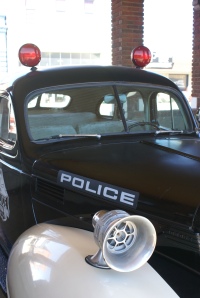In Washington, marijuana is legal for both medical and recreational uses. As a result of its voters legalizing the substance, the state is now undertaking the task of adopting new standards for regulating marijuana. Washington decided to propose a standard more closely in line with that in force for other substances, such as alcohol.
 One such regulation, Initiative 502, made national headlines in late 2012 because it sets an objective impairment standard: tetrahydrocannabinol (THC) content of greater than 5 nanograms per milliliter in a driver’s blood triggers Washington’s anti-DUI laws, with or without a medical use card. I-502 has been the subject of controversy since its adoption because of the alleged dubiousness of the 5 nanogram threshold. Although difficult, establishing a uniform objective standard for impairment should be a high priority for many states as drugs which significantly alter their user’s mental state become more widely accepted and legalized.
One such regulation, Initiative 502, made national headlines in late 2012 because it sets an objective impairment standard: tetrahydrocannabinol (THC) content of greater than 5 nanograms per milliliter in a driver’s blood triggers Washington’s anti-DUI laws, with or without a medical use card. I-502 has been the subject of controversy since its adoption because of the alleged dubiousness of the 5 nanogram threshold. Although difficult, establishing a uniform objective standard for impairment should be a high priority for many states as drugs which significantly alter their user’s mental state become more widely accepted and legalized.
In contrast, Arizona, which approved medical marijuana in 2010, does not enforce a blood-content limitation in its DUI laws. The Arizona standard, codified at A.R.S. § 28-1381, only specifically lists blood alcohol content as a factor in determining whether a driver was impaired by alcohol while driving. Marijuana falls into the category of “any drug” and driving while impaired “to the slightest degree” is enough to violate the statute. This is a more hardline approach and, although it appears to be objective, actually relies on law enforcement’s subjective analysis of the driver, at least at initial contact.
Police officers are trained to identify impairment using standardized tests, but the well-established .08 blood alcohol concentration (BAC) limitation for non-commercial driving is the most irrefutable (and usually error-free) form of evidence that the state uses to prove DUI violations. A driver who is arrested and whose BAC is at or above .08 grams per 100 milliliters of blood is presumed guilty of driving under the influence as long as the blood test was performed in accordance with legal guidelines. A driver could still be convicted of a DUI without a .08 BAC, however, with a strong enough showing of evidence of impairment.
 For medical marijuana users, no such presumption exists because Arizona has not adopted a fixed standard for acceptable concentrations of active THC in the blood. Even if a standard were to be adopted, similar to the one in Washington, it remains unclear how much marijuana is enough to reach 5 nanograms per milliliter or how long the impairment will last, to say nothing of the wisdom of the 5-nanogram cutoff, itself.
For medical marijuana users, no such presumption exists because Arizona has not adopted a fixed standard for acceptable concentrations of active THC in the blood. Even if a standard were to be adopted, similar to the one in Washington, it remains unclear how much marijuana is enough to reach 5 nanograms per milliliter or how long the impairment will last, to say nothing of the wisdom of the 5-nanogram cutoff, itself.
As with anyone who imbibes a reasonable amount of alcohol and wishes to drive, medical marijuana users should be careful and plan ahead. If you need to be somewhere soon after using medical marijuana, and even though you don’t feel you’re too impaired to drive, remember that in Arizona that determination is made by the arresting officer. Even if you are capable of operating your vehicle safely, a minor traffic infraction – a faulty headlight or failing to signal a lane change, for example – could result in a DUI arrest.
Just as hard liquor contains more alcohol than beer, some strains of medical marijuana are more potent than others. Even using the same marijuana on different days could result in different levels of impairment based on countless variables. Your medical marijuana card will protect you from the per se violation of having metabolites in your bloodstream, but it will not protect you from DUI if you are pulled over and subsequently arrested.


